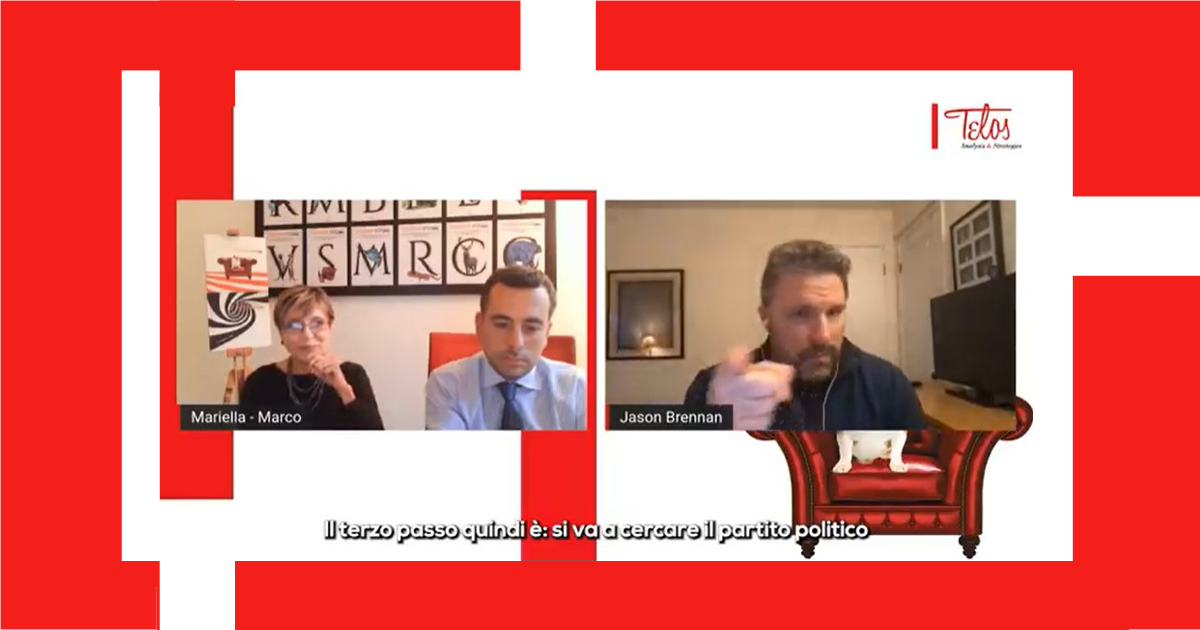Jason Brennan, a journey into the voters' minds
Who are voters really? This is one of the questions we asked to the American philosopher Jason Brennan, Telos A&S guest in the live conversation ‘The Power of Voting’, for the series Shall We Call Power Odd and Scary Beast?, designed to launch the collection TWO, the volume featuring a selection of interviews by PRIMOPIANOSCALAc.
Here you will find the video with 'the best of'.
To get into the minds of the voters, you have to consider at least three factors.
Factor number one is the desire for the strong man in power. According to Brennan, polarisation is a widespread phenomenon in many Countries. A state of mind that generates intolerance and mistrust. When voting, “people no longer tend to believe that they can lose fairly. This makes them more inclined to think: we need a strong authoritarian man to come and solve the problems.”
Factor number two is the mismatch between experiencing the world and voting. According to what Brennan likes to call the “primary school theory of democracy”, we are led to think that voters have a set of interests that arise when they are still children, then experience the world, and finally vote in line with that experience. According to Brennan, this is not the case. “If these were all true, what would happen is democracy would convert popular opinion into power”. Instead, Brennan doubts that there is a close relationship between personal experience and voting orientation. Consequently, governments do not really represent people.
Factor number three is the desire to belong to a “tribe”, i.e., a group with a precise identity. “People vote for the same party over and over again, as a kind of signal of their loyalty to the group.” This happens regardless of knowledge of the programme of that party or candidate.
To get to know voters better, but above all so that voting is a real exercise of power, Brennan proposes the system of “enlightened preference voting”, which requires people to do three things. The first thing is to express what they want by voting. The second thing is to say who they are, then enter their personal information. The third thing is to do a 'test', involving such things as the role of government or the price of milk. Their vote will count even if they can't answer, but it would be a way of finding out what the voter really knows.
Fascinating theories, which are worth discussing, not least in view of the increasing relinquishment of this right as witnessed by the high abstention rates.
The next event of Shall We Call Power Odd and Scary Beast? will be 'The Power of Lobbying'. On Thursday 16 December at 6pm we will have as guest Theodoros Koutroubas, Professor of Political Science at the University of Leuven.






SocialTelos